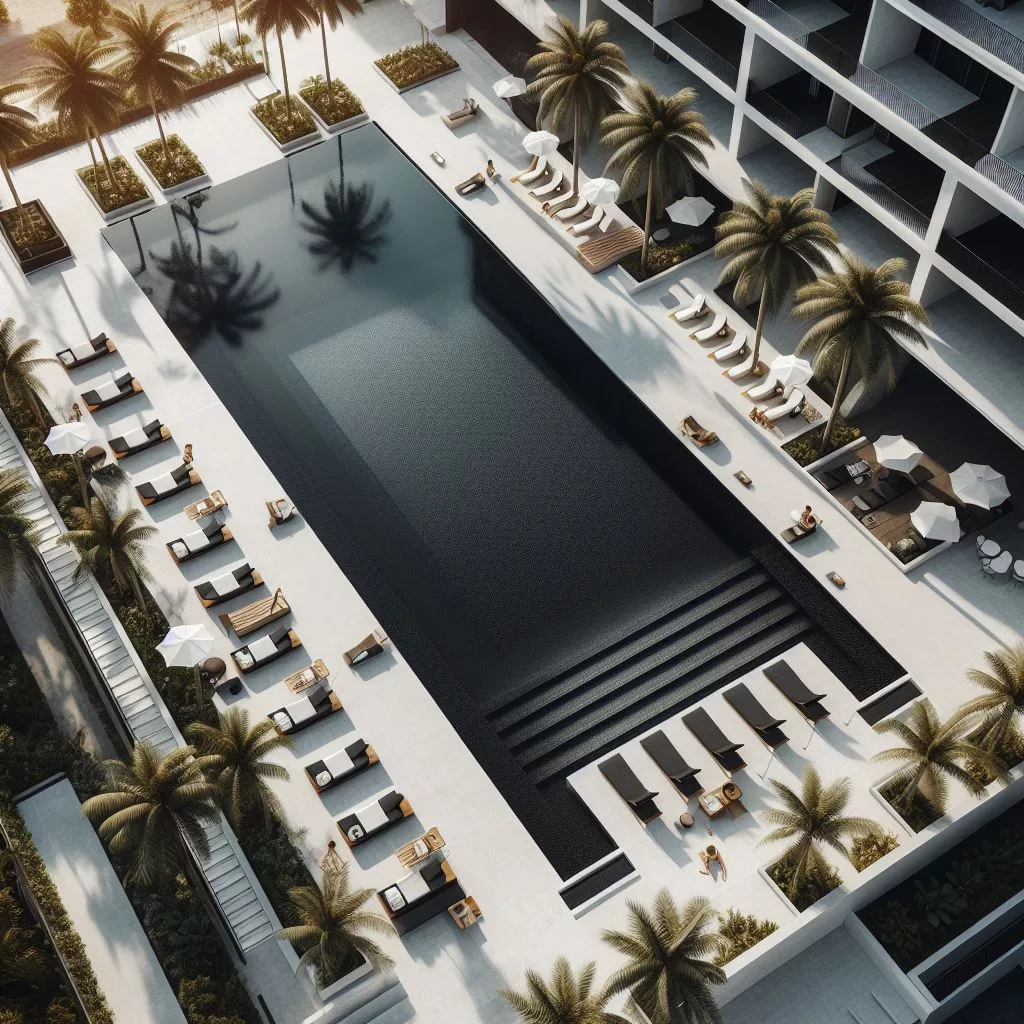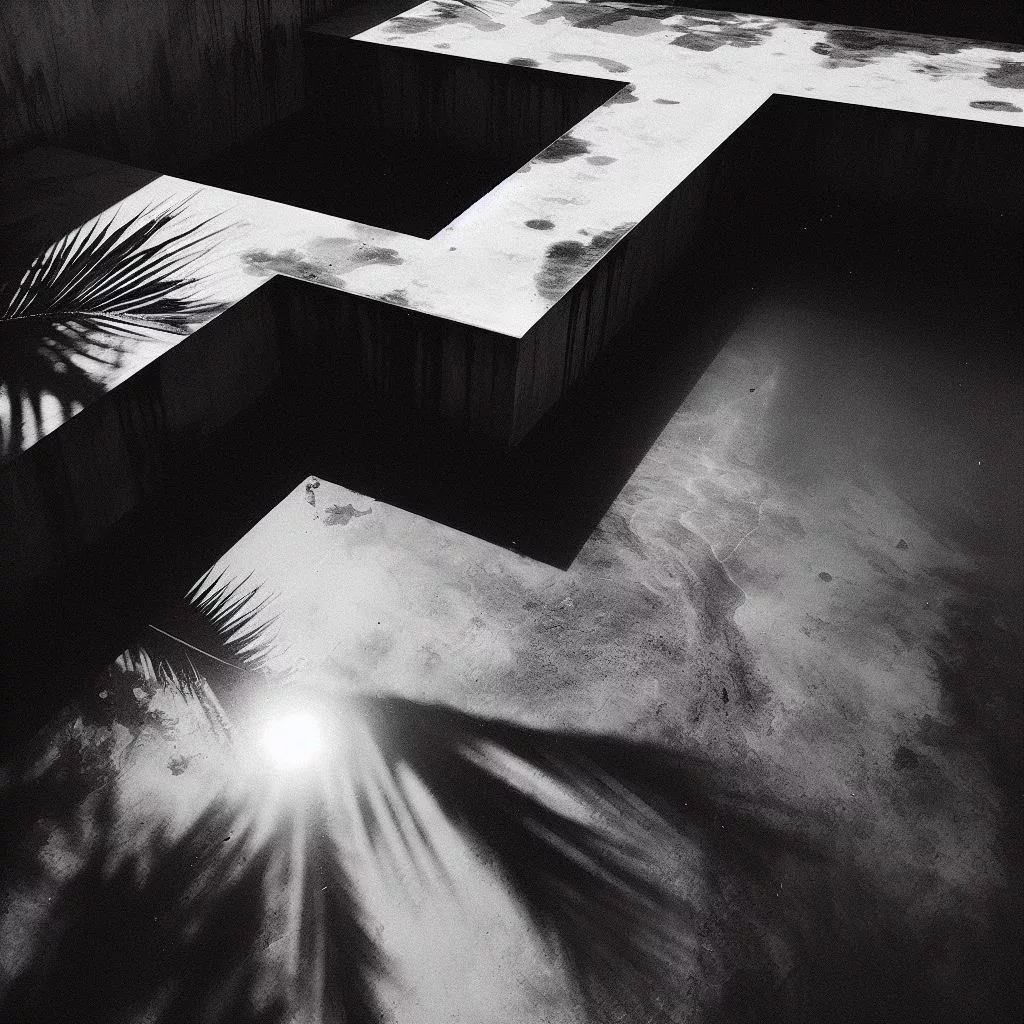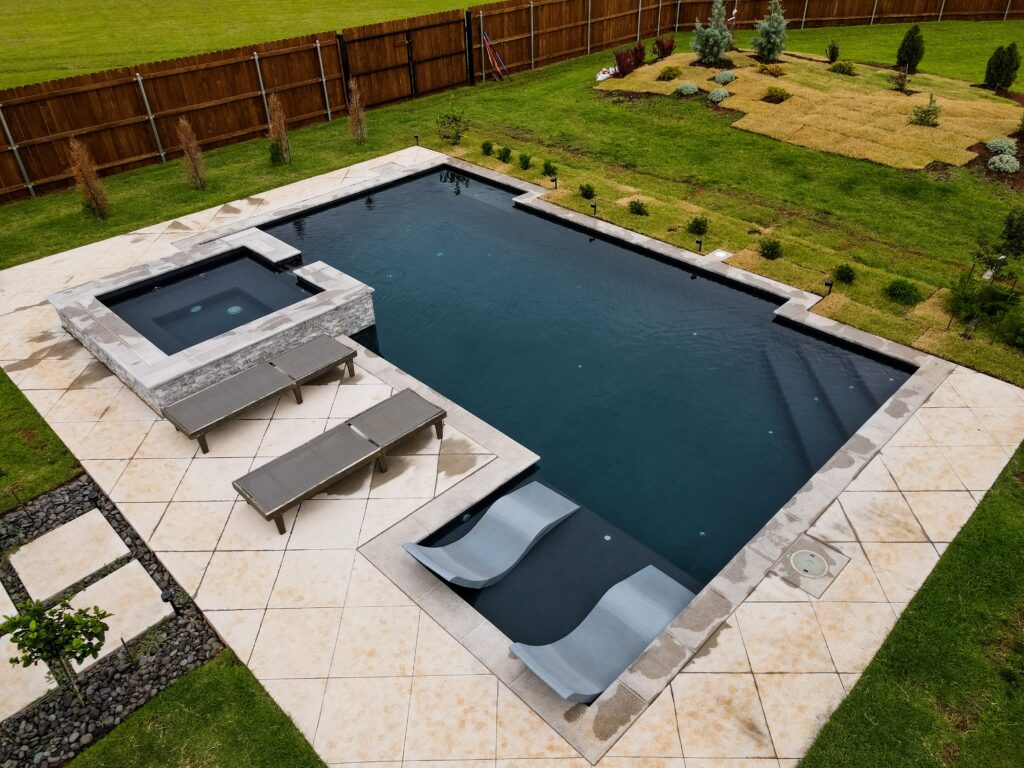
Black Plaster Pools
If you’re looking for a dark and mysterious swimming pool, then you’ve probably come across black plaster pools. They’re trendy, sophisticated, and they make a statement.
There are a few things to consider before you choose a black plaster pool. Despite their undeniable beauty, these pools have lots of issues and it’s important you’re informed about them.
Pool Plaster Issues
Fading
With a black plaster finish, the color will likely fade. This is a common issue with black plaster pools, and there are a few different reasons why it happens.
One reason for fading black plaster is simply due to UV exposure. The sun can cause the color of the plaster to fade over time, and there’s not much you can do to prevent it. If your pool is in an area that gets a lot of sun exposure, you may notice the color fading more quickly.
Another reason for fading black plaster is because of chlorine. Chlorine is a powerful chemical that’s necessary for keeping pools clean, but it can also cause the color of plaster to fade. If you have a black plaster pool and you use a lot of chlorine, you may notice the color fading more quickly.
There are some types of plaster that are more resistant to fading than others. If you’re concerned about the color of your black plaster pool, talk to your pool contractor about using a different type of plaster.

Etching
One of the most common pool plaster issues is etching. This occurs when the plaster is exposed to acidic substances, like chlorine or sweat. The acid reacts with the plaster, causing it to dull and lose its shine. Etching is usually more pronounced on dark-colored plaster, but it can happen to any type of plaster, regardless of color.
The best way to prevent etching is to avoid using harsh chemicals in your pool. If you do use chlorine, be sure to brush the sides of the pool regularly to remove any build-up.
Cracking
Another common pool plaster issue is cracking. This can happen for a number of reasons, but the most common is improper installation.
If the plaster is not mixed correctly, or if it’s applied too thick or thin, it can lead to cracking. Cracks can also occur if the plaster is exposed to too much water or chemicals.
The best way to prevent cracking is to have your pool professionally installed. This will ensure that the plaster is mixed correctly and applied properly.
Staining
Staining can be caused by a number of things, including leaves, dirt, and even swimmers themselves.The best way to prevent staining is to keep your pool clean and free of debris. You should also brush the sides of the pool regularly to remove any build-up.
Chalking
Chalking occurs when the plaster starts to break down and form a powdery substance on its surface.The best way to prevent chalking is to keep your pool clean and free of debris. You should also brush the sides of the pool regularly to remove any build-up.
Discoloration
Discoloration is another common pool plaster issue. This can be caused by a number of things, including sunlight, water chemistry, and even swimmers themselves. The best way to prevent discoloration is to keep debris out of your pool.
Erosion
If you have an inground pool with plaster surfaces, sooner or later you’re going to have to deal with some plaster erosion. It’s an unfortunate but inevitable part of pool ownership. The good news is that there are some things you can do to minimize the amount of erosion and the likelihood of it happening in the first place.
The first thing to understand is what causes plaster erosion. Plaster is a porous material, so it naturally absorbs water. When water seeps into the plaster, it slowly begins to break down the plaster from the inside out. This is why you often see pools with black plaster around the waterline – the water has seeped into the plaster and caused it to erode.
There are a few things you can do to prevent plaster erosion. First, make sure your pool is properly balanced. pH levels that are too high or too low can accelerate the erosion process. Second, don’t use harsh chemicals or cleaners on your pool surfaces. These can also break down the plaster and make it more susceptible to erosion. Finally, be sure to brush and vacuum your pool regularly. This will help remove any dirt or debris that could be seeping into the plaster and causing it to erode.
For more information on pool plaster repair check out this resource.

Black Plaster Pool Alternative
So you want a black coating for your swimming pool but you’re unsure about plaster? ecoFINISH® is an alternative that is becoming increasingly popular among pool owners. ecoFINISH’s aquaBRIGHT™ and polyFIBRO® are flame-sprayed coatings that are highly resistant to chipping, peeling, and damage from UV rays and chemicals. They are more durable than plaster, so they will last longer and also resist fading and staining. These coatings are also much easier to clean than plaster, so you will spend less time and money on maintenance.
If you’re set on a black swimming pool and decide to use an ecoFINISH coating, be sure to use the Midnight Blue or Perle Noire color, as these colors will create the darkest color water and are available for both aquaBRIGHT and polyFIBRO.
